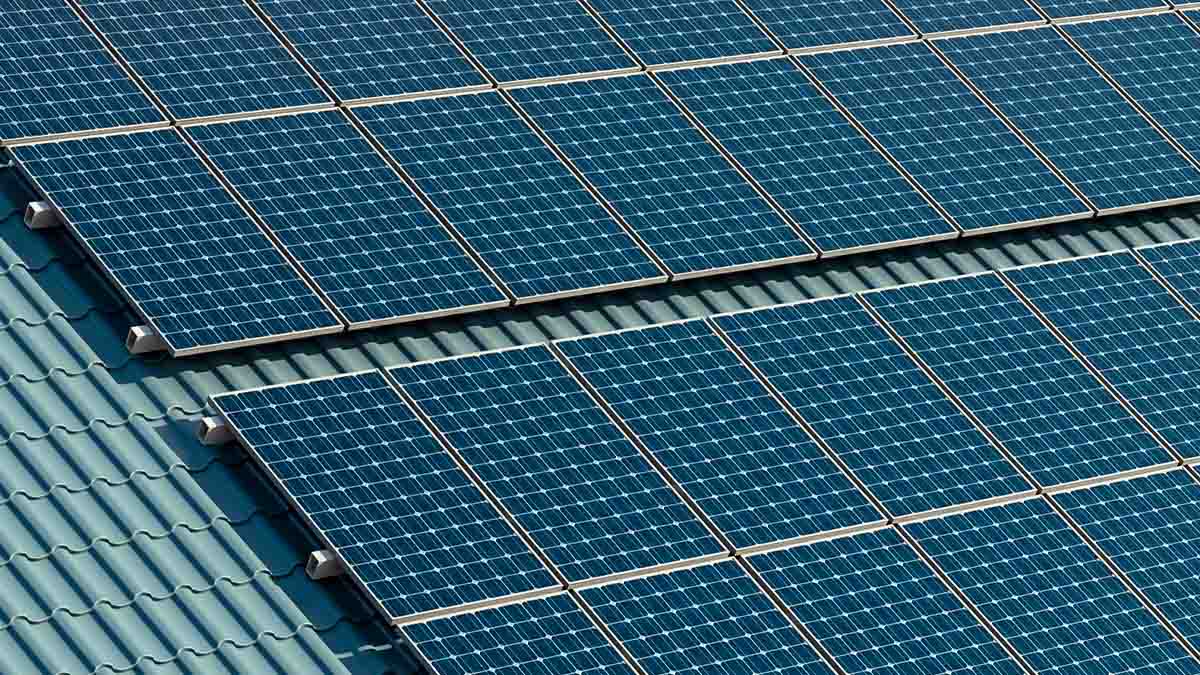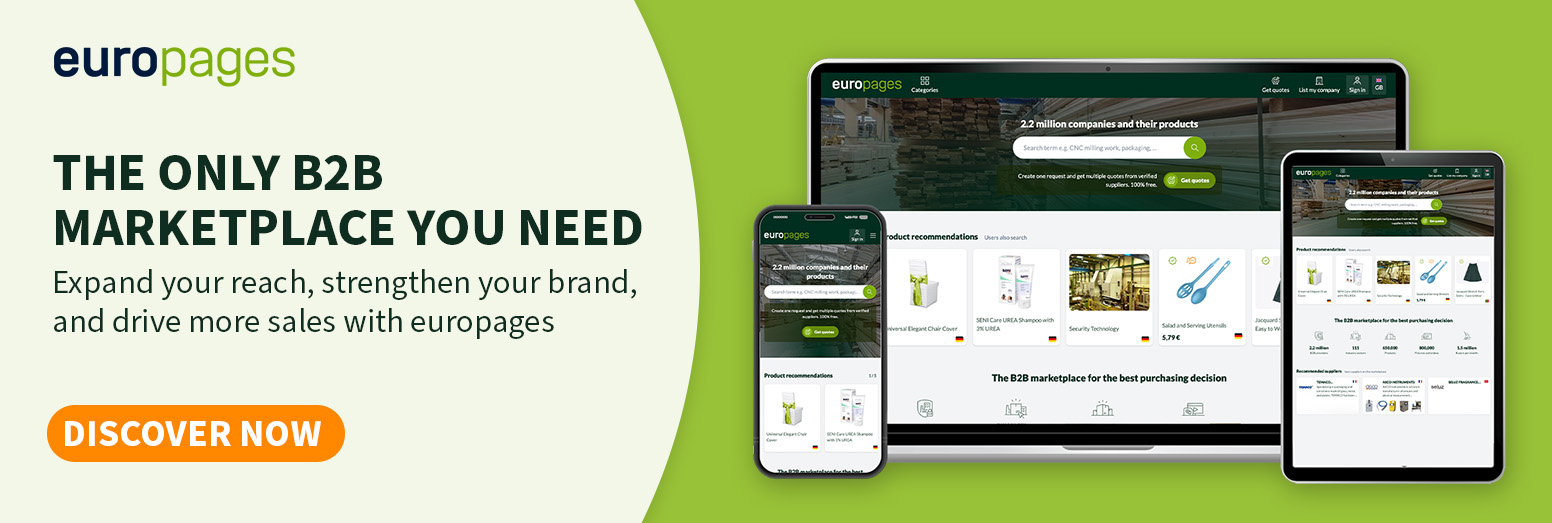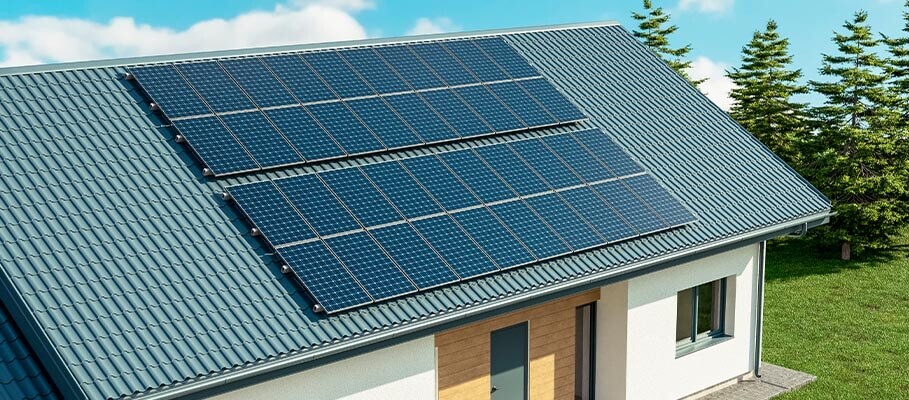Table of Contents
- The Synergy of Solar Panels and Smart Home Technology
- Solar Energy Banks: Enhancing Solar Panel Functionality
- Domotics: The Brains Behind the Smart Home
- Integrating Solar Panels and Domotics: A Step-by-Step Guide
- Cost-Effectiveness and Return on Investment for B2B Professionals
- Pros and Cons of Solar Integration in House Construction
- Monitoring and Optimization: The Key to Energy Efficiency
- The Role of Technology in Modern Houses
- Pro Tip: Leveraging Solar Integration for Competitive Advantage
- Conclusion
1. The Synergy of Solar Panels and Smart Home Technology
The convergence of solar panels and smart home technology represents a significant leap forward in the quest for sustainable living. Solar panels, devices that convert sunlight into electricity, have long been recognized for their environmental benefits. However, their integration with domotics, or home automation systems, elevates their functionality to new heights. In a smart home, solar panels not only provide power but also interact intelligently with other systems within the house.
For instance, a technology house might adjust its energy consumption based on the amount of solar energy available, optimizing the use of renewable resources. This integration ensures that the house operates efficiently, reducing reliance on the traditional power grid and minimizing the carbon footprint.
2. Solar Energy Banks: Enhancing Solar Panel Functionality
Solar energy banks are crucial components in the modern, energy-efficient house. Essentially, these are advanced battery systems that store excess electricity generated by solar panels. Unlike traditional solar setups where unused energy is lost or fed back into the grid, a solar energy bank allows homeowners to store this energy for later use. This is particularly beneficial during periods of low sunlight or at night. The availability of different types of solar energy banks, such as lithium-ion or lead-acid batteries, offers flexibility in terms of capacity, lifespan, and cost.
B2B professionals should consider these factors when recommending solutions to clients. The use of a solar energy bank not only increases a house's energy independence but also provides a backup power source during outages, ensuring uninterrupted operation of domotics and other essential systems.
3. Domotics: The Brains Behind the Smart Home
Domotics, also known as home automation, is the technology that enables various devices and systems within a house to communicate and operate in a coordinated manner. In the context of a technology house, domotics can control lighting, heating, air conditioning, security systems, and even appliances. When integrated with solar panels and a solar energy bank, domotics can manage energy consumption intelligently. It can be programmed to run energy-intensive appliances when solar energy production is at its peak or draw power from the solar energy bank during times when electricity rates are high. This level of automation not only enhances convenience for homeowners but also significantly improves energy efficiency.

4. Integrating Solar Panels and Domotics: A Step-by-Step Guide
Integrating solar panels and domotics in a modern house involves several key steps. First, a thorough assessment of the house's energy needs is essential. This includes evaluating the size and orientation of the roof for optimal solar panel placement and determining the appropriate capacity of the solar energy bank. Next, the installation of high-quality solar panels is carried out by qualified professionals. The solar panels are then connected to the solar energy bank through an inverter, which converts the direct current (DC) electricity produced by the panels into alternating current (AC) electricity used in homes.
Finally, a domotics system is installed and programmed to interact with the solar setup. This system can monitor energy production and consumption, optimize appliance usage, and even provide real-time data to homeowners.
5. Cost-Effectiveness and Return on Investment for B2B Professionals
For B2B professionals, understanding the cost-effectiveness and return on investment (ROI) of integrating solar panels, solar energy banks, and domotics is crucial. While the initial investment can be substantial, the long-term benefits often outweigh the costs. Solar panels significantly reduce electricity bills, and the addition of a solar energy bank further enhances savings by allowing homeowners to store and use their own generated power.
Domotics adds another layer of efficiency, optimizing energy use and potentially lowering costs even more. Moreover, the increasing demand for sustainable and smart homes means that properties equipped with these technologies often have higher market value. B2B professionals can leverage these advantages to attract clients and offer solutions that provide a clear and compelling ROI. How can businesses best communicate these long-term benefits to potential clients?
6. Pros and Cons of Solar Integration in House Construction
The integration of solar panels in houses offers numerous advantages. Solar energy is a clean, renewable resource that reduces reliance on fossil fuels and lowers carbon emissions. By generating their own electricity, homeowners can significantly reduce their energy bills. Solar energy banks provide a reliable source of power, even during grid outages. Homes with solar and smart home features are often more attractive to buyers and command higher prices. Integration with domotics offers a cutting-edge living experience, appealing to tech-savvy consumers.
However, there are also some drawbacks to consider. The upfront cost of purchasing and installing solar panels, solar energy banks, and domotics systems can be significant. Adequate roof space is needed for optimal solar panel installation. Solar energy production is affected by weather conditions, such as cloud cover. While generally low-maintenance, solar panels and batteries may require periodic cleaning and servicing. Integrating these technologies requires careful planning and coordination.
Request a consultation to our team and discover how to effectively promote your products on our platform.

7. Monitoring and Optimization: The Key to Energy Efficiency
Effective monitoring and optimization are crucial for maximizing the benefits of a solar-powered smart home. Domotics systems play a central role in this process. These systems can track energy production from the solar panels, storage levels in the solar energy bank, and overall energy consumption within the house. By analyzing this data, homeowners and B2B professionals can identify patterns and areas for improvement. For example, they might discover that certain appliances consume more energy than expected or that energy usage peaks during specific times of the day. Armed with this information, they can adjust settings, replace inefficient devices, or modify behaviors to optimize energy use. Many domotics systems also offer remote monitoring capabilities, allowing homeowners to track their energy performance via smartphones or tablets, even when they are away from home.
8. The Role of Technology in Modern Houses
The integration of advanced technologies like solar panels, solar energy banks, and domotics is transforming the concept of the modern house. These technologies not only enhance energy efficiency and sustainability but also improve the overall living experience. A technology house offers a level of convenience and control that was previously unimaginable. Homeowners can automate various tasks, from adjusting the thermostat to scheduling appliance operation, all through a centralized system. This level of automation can also enhance security, with features such as motion sensors, surveillance cameras, and smart locks that can be monitored and controlled remotely.
Furthermore, the data generated by these systems provides valuable insights into energy usage patterns, enabling continuous optimization and further cost savings. B2B professionals can leverage these technological advancements to offer innovative solutions that meet the evolving needs of homeowners.
9. Pro Tip: Leveraging Solar Integration for Competitive Advantage
Here are some key points for B2B professionals looking to offer integrated solar and smart home solutions:
- Comprehensive Packages: Bundling solar panels, solar energy banks, and domotics systems creates a compelling offering for environmentally conscious and tech-savvy consumers. This simplifies the process for homeowners and ensures seamless integration.
- Target Market: Focus on the growing market of environmentally conscious and tech-savvy consumers who are looking for sustainable and convenient home solutions.
- Simplified Solutions: Offer a one-stop shop for integrated solar and smart home needs, simplifying the process for homeowners and providing a convenient, all-in-one solution.
- Financing Options: Provide financing options to make these solutions more accessible and overcome the barrier of high initial costs.
- Superior Customer Support: Differentiate your business by offering excellent customer support, including installation, maintenance, and troubleshooting services. This builds trust and long-term relationships.
Get tailored quotes from suppliers that match your specific requirements. Start now by using our "Request for Quotes" page.

10. Conclusion
The integration of solar panels, solar energy banks, and domotics is revolutionizing modern house construction. This synergy offers significant benefits for homeowners, including reduced energy costs, increased energy independence, and an enhanced living experience. For B2B professionals, these technologies present an opportunity to deliver innovative solutions that meet the growing demand for sustainable and smart homes.
While challenges such as high initial costs exist, the long-term benefits and increasing market demand make this a promising area for growth. As technology continues to advance, what new possibilities will emerge for the integration of solar energy and home automation?
Here is an article about the solar energy status in the world from ScienceDirect.
For more information about home building, read these insightful articles:
Wood's Comeback in Modern Architecture
Find Solar-Supplier for Your Project!
Sun World Energy is a young and dynamic photovoltaic company committed to providing top-quality, innovative products at the best prices, along with comprehensive sales, technical, and post-sales support, including project execution options and their own manufactured products, to help customers achieve business growth and competitive advantage.
EPP Solar is an e-commerce marketplace offering a wide range of affordable, high-quality solar products, including modules, inverters, storage, and mounting systems, for both B2B and B2C customers, with fast delivery, flexible payment, and expert support.
Grupcam, a leading glass processor with over 30 years of experience, specializes in high-quality Insulating Glass Units (IGUs) for architectural facades and residential applications, offering a diverse product range designed for optimal performance and aesthetics to meet the demands of modern construction.
Millie Solar, founded in 2018, is a leading provider of innovative solar panel cleaning solutions, offering cleaning, maintenance, and organization services, along with e-learning tools and a robust supply chain, for solar energy farms and panels worldwide.
Axinar SMPC, a leading OEM manufacturer in northern Greece, leverages its expertise in metal processing and advanced CNC machinery to produce high-quality, precision metal parts for the machinery industry, with a capacity of 3000 tons per year and a focus on exceeding client expectations.

